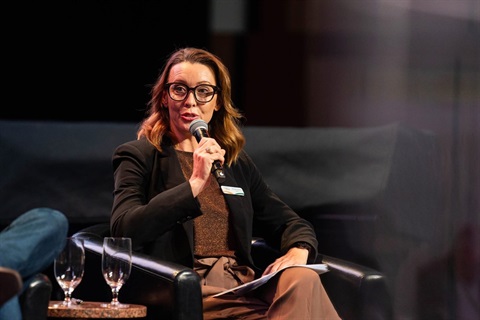COUNCIL REPRESENTS OUR REGION AT REGIONS RISING NATIONAL CONFERENCE
Published on 09 October 2025

Glen Innes Severn has taken its place on the national stage, representing the strength and innovation of regional Australia at the Regional Australia Institute’s (RAI) Regions Rising National Conference in Canberra.
The conference brought together Ministers, regional leaders and industry experts to explore how regions are shaping Australia’s future — from renewable energy and infrastructure to housing, workforce and health.
At the Regional Dialogue Day, the Glen Innes Health Hub — an initiative of the Hunter New England and Central Coast Primary Health Network (PHN) — was showcased as one of the nation’s most innovative regional health projects. The Hub was recognised for its collaborative approach to improving access to healthcare and attracting health professionals to rural communities.
Mayor Margot Davis said it was an honour to see the project recognised nationally for the difference it is making to regional wellbeing.
“The Glen Innes Health Hub shows what happens when local collaboration is matched with the right kind of support,” said Cr Davis.
“It’s a model for how regional challenges can be solved when the people who live and work in a community are trusted to design the solutions.”
Cr Davis was also invited to join a national Net Zero panel, sharing the stage with representatives from the Net Zero Economy Authority, Clean Energy Council, Transgrid, and the Regional Australia Institute, which recently launched The REAL Deal — a new policy framework to help regional Australia harness the energy transition to deliver long-term, sustainable prosperity.
Mayor Davis participating on the panel
Image Credit: RAI Facebook Page
The discussion explored how the REAL Deal and Regional Energy Accord are creating new models of collaboration between government, industry, and communities.
Drawing on the Glen Innes and New England experience, Mayor Davis strongly advocated for regional empowerment, transparency, and trust in how Renewable Energy Zone (REZ) projects and benefits are managed.
“The energy transition is gaining genuine momentum — investment is flowing, and the opportunities for regional growth are real,” said Cr Davis.
“But it’s also exposing major weaknesses that threaten the resilience of host communities. Housing shortages, healthcare strain, and overstretched services are eroding social cohesion in towns that are being asked to shoulder the infrastructure load.”
She urged governments to cut red tape and enable councils and communities to make their own decisions about how REZ-related funding is spent, rather than having those funds administered by EnergyCo through complex grant processes.
“The idea of EnergyCo administering local benefit funds through grant buckets is a waste of time and money. Every dollar skimmed off the top for administration is a dollar not invested in local roads, housing, health services, or community growth. Councils know their priorities — they live them every day. We’re not asking for more bureaucracy; we’re asking for the tools to deliver,” said Cr Davis.
Mayor Davis called for the creation of a REZ Data Dashboard to overlay transmission and renewable project data, helping councils and communities to understand cumulative impacts on housing, healthcare, essential services, and workforce needs. This would allow local governments to plan proactively for the skilled workforce required to support both construction and long-term operations, and ensure locals have access to training and employment opportunities that align with emerging industries.
“A REZ Data Dashboard would help councils forecast demand — from housing to health to workforce — and plan accordingly,” she said.
“We want to ensure that local people are skilled up, local businesses are engaged, and our towns are ready to meet the challenges and opportunities the energy transition brings.”
She also highlighted Glen Innes Severn Council’s work on developing a Local Fund model aligned with the REAL Deal principles — ensuring benefit-sharing is transparent, accountable, and driven by local priorities.
“Regional communities want agency — the ability to design their own future. The REAL Deal reflects that. It’s about investing in long-term outcomes, not tokenistic grants. If managed locally, the millions flowing through the REZ could finally fill the funding void left by decades of underinvestment in regional infrastructure and services.”
“Glen Innes Severn Council expects to realise significant financial gains over the next decade from the energy transition, and it is critical that we have ownership of how these funds are allocated and invested to ensure that we deliver and maximise the long term benefits for our community and future generations,” Cr Davis said.
Mayor Davis concluded that true social license is not about approvals or grants — it’s about trust, transparency, and shared prosperity.
“The legacy we want from the energy transition is not just megawatts to the grid — it’s thriving, resilient regional communities with the certainty and resources to build their own future,” she said.
Media Enquiries: (02) 6730 2314 | media@gisc.nsw.gov.au